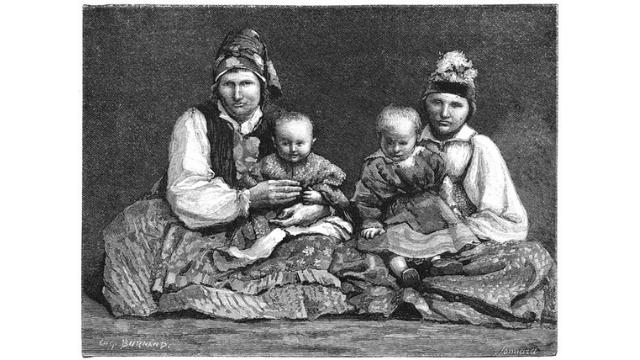China and Russia have different definitions of “cults,” based on different historical traditions—both hostile to religious liberty.
by Luigi Berzano (University of Torino, Italy), Boris Falikov (Moscow State University for the Humanities, Moscow, Russia), Willy Fautré (Human Rights Without Frontiers, Brussels, Belgium), Liudmyla Filipovich (Department of Religious Studies, Institute of Philosophy of the National Academy of Sciences, Kiev, Ukraine), Massimo Introvigne (Center for Studies on New Religions, Torino, Italy), and Bernadette Rigal-Cellard (University Bordeaux-Montaigne, Bordeaux, France).
Article 2 of 7. Read article 1.


China has a draconian legislation making the mere fact of being active in a religious group labeled a “xie jiao” a crime, punished by Article 300 of the Chinese Criminal Code. Scholars of law and religion in China have collected and analyzed hundreds of court decisions demonstrating that, contrary to what is sometimes argued by Chinese embassies in propaganda materials, any activity within or on behalf of a “xie jiao” is a crime in China.
Sometimes, Chinese texts argue that the mere fact of being members of a “xie jiao” is not punished, only “criminal activities.” The fact of the matter, however, is that under the official interpretation of Article 300, expressed in circular letters by the Supreme Court and the Supreme Procuratorate and derived from Chinese case law, attending worship meetings of a “xie jiao,” sharing its faith with co-workers or relatives, and even keeping at home a certain quantity of books and videos of a banned movement are “criminal activities” leading to severe jail sentences. Obviously, these activities are not illegal in democratic countries, and are protected by international conventions as typical expressions of religious liberty.
It is also not true that only leaders of the “xie jiao” are prosecuted and sentenced under Article 300. Zhang Xinzhang, a professor at the School of Marxism of Zhejiang University regarded as an authority on “xie jiao” in China, whom we already quoted in the previous article, states that while from his personal point of view it would be desirable that only leaders would be punished, what currently happens in practice is that also “‘normal’ members [i.e., not ‘leaders’] receive heavy sentences.”
But what is a “xie jiao”? When he agreed with Western scholars that “xie jiao” should not be translated as “evil cults” or “cults,” the main argument used by Zhang was political. He noted that the core feature of the “xie jiao” in China is being perceived as hostile to the government, which is not necessarily part of the meaning of the word “cult” in English. We believe that another strong argument in support of his idea not to translate “xie jiao” comes from history, as evidenced by the studies of Wu Junqing, a Chinese scholar currently teaching at the University of Liverpool.
Translating “xie jiao” as “cults” is anachronistic. “Jiao” means “teachings” and “xie” means “twisted,” “bent,” and when applied to ideas “incorrect” or “wrong.” This application predates the Christian era. However, the compound “xie jiao” was first used by an identifiable historical figure, Fu Yi (555–639), a Taoist intellectual and Tang courtier. Fu was persuaded that Buddhism was a mortal threat for China and should be eradicated altogether, if necessary by exterminating Chinese Buddhists. In two texts written in 621 and 624, he explained why this was necessary and Buddhism was a “xie jiao,” a term he coined to indicate “heterodox teaching.”


Already in the first use of the term by Fu Yi, we may see that theological criticism of Buddhism was secondary. For Fu, the two key features of a “xie jiao” are not theological. First, a “xie jiao” does not recognize the absolute authority of the Emperor and does not support the state. Second, “xie jiao” are expression of a “barbarian wizardry” which is not part of the great Chinese religious tradition. Fu had nothing against magic in general. In fact, he was the Great Astrologer of the Tang court. What he meant was that Buddhism was using black magic.
While Buddhism was finally not eradicated in China, although it was periodically persecuted, the Medieval Song and Yuan dynasties continued to use “xie jiao” to indicate movements they planned to eliminate. The two features of a “xie jiao” remained being perceived as antigovernment and being accused of using black magic, including raising goblins and casting malevolent spells.
It was during the late Ming era that the prohibition of “xie jiao,” with the death penalty for those involved in their activities, was officially legislated, and movements were officially declared “xie jiao” first at the local and then at the national scale. In the 17th century, they included indigenous Chinese groups but also Christianity as a whole. Christians were also accused of practicing black magic, including tearing out the eyes and internal organs of children and using them in alchemical rituals. The Qing dynasty repeated almost verbatim the Ming provisions against the “xie jiao.”


Later, the case of Christianity continued to prove that listing a religion as a “xie jiao” or removing it from the corresponding list largely obeyed to political motivations. The Qing listed Christianity as a “xie jiao” in 1725 but took it off the list in 1842 due to pressures by the Western powers. Communist China did not invent the category of “xie jiao” but inherited it from a century-old tradition, which had very little to do with Western controversies about “cults.”
The use of “xie jiao” in contemporary Chinese political discourse, as Wu notes, remains coherent with this tradition. The old accusation of “black magic” has been secularized as “brainwashing,” which creates a similarity with Western anti-cultism but is also paradoxical considering that the word “brainwashing” was created by CIA propaganda during the Cold War to designate allegedly infallible psychological manipulation techniques used by Communist China.
However, the core feature of a “xie jiao” for the Chinese authorities is that it is a religious movement (or, more precisely, a movement that claims to be religious) that actively opposes the government and refuses to fit, as “legitimate” religions do, into the model of a spiritual organization that supports the political power and conveys its directives and slogans to the believers. Although this approach to the “xie jiao” is presented in Marxist terms, in fact the idea that “xie jiao” are politically subversive organizations derives from Imperial China. A “xie jiao,” i.e., in the official English translations a “cult,” is a religious (or “pseudo-religious”) movement that actively or passively opposes the government.
Russian anti-cultists use the expression “destructive cult” or “totalitarian cult” (as mentioned earlier, they use “секта” [sekta] and translate this word into English as “sect,” but it should be translated as “cult.”) Although in international conferences where Chinese colleagues are also present, Russian “cult experts” claim that their respective definitions of “cults” are the same, in fact they are very much different.
While often coached in deceptively secular terms, in fact the definition of “cult” prevailing in Russia is deeply rooted in the theology of the Russian Orthodox Church.


A “cult” (секта) is an “extremist” religious organization. “Cults” are mostly punished and banned by applying legislation against extremism. Anti-extremism provisions were introduced in Russia after 9/11 and amended in 2006 after the “Russian 9/11” or “the 9/11 of children,” i.e. the terrorist attack in Beslan, North Ossetia, of September 1–3, 2004, where 354 were killed, including 186 children. The law was originally intended as a weapon against radical Islamic fundamentalism and terrorism. With the amendment of 2006, however, “extremism” can be found even without actual violence or incitement to violence.
“Experts” and courts in Russia have elaborated “religious extremism” as a subcategory of “extremism.” According to them, are “extremist” these religions and movements that claim that they preach the only way to salvation, and that all the other religions (including Christianity as taught by the Russian Orthodox Church) are false or limited.
Of course, all religions claim that they preach a way to salvation or enlightenment that offers something more than other religions—otherwise, why should anybody join them? However in Russia “extremism” is used as a falsely secular label to designate religions and movements that actively compete with the Russian Orthodox Church and try to convert Orthodox to their faith—or are perceived as such by the Orthodox hierarchy.
In Russia, a “cult” is a religious group that preaches its faith to Orthodox believers and creates a competition the Russian Orthodox Church is not prepared to tolerate. This explains why, for example, anti-cultists label as “cults” or “extremist” organizations Evangelical and Pentecostal Christian churches that very few people would designate as “cults” in the West. What these labels, which needs to be decoded, really mean is that these churches proselytize in what the Russian Orthodox Church calls its “canonical territory.”


Russia tolerates Judaism, Islam, Buddhism and Catholicism if they cater to historical ethnic minorities and have no proselyting activities targeting the Orthodox. When movements within these religious traditions try to convert Orthodox believers, they are immediately labeled as “cults” or “destructive cults” and persecuted.
There is a clear difference with China. The Chinese anti-cult (anti-xie-jiao) apparatus protects the ideological monopoly of the state against any religion that would presume to act independently of the state. The Russian anti-totalitarian-cults system protects the religious monopoly of the Russian Orthodox Church. The state is theoretically secular, but in practice, at least since Vladimir Putin came to power, there is a strict connection between the regime and the Russian Orthodox Church based on an unwritten but faithfully kept bargain.
The Russian Orthodox Church organizes the consensus for the Putin regime, and the regime protects the Orthodox monopoly by cracking down on, or “liquidating” (as happened to the Jehovah’s Witnesses in 2017), any religious organization perceived as threatening it. There are some Orthodox theologians and laypersons who have elaborated a Christian discourse on religious liberty and disagree with this attitude. But their voices are silenced.









